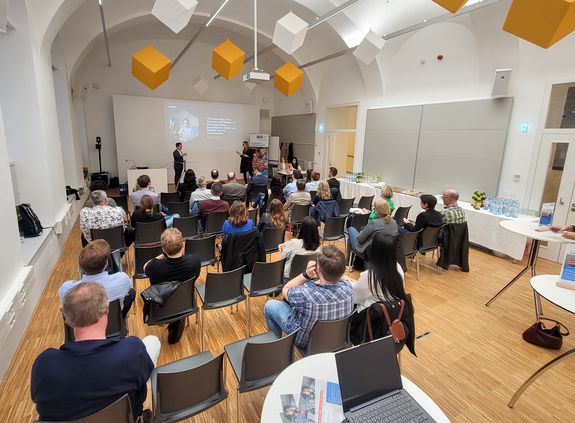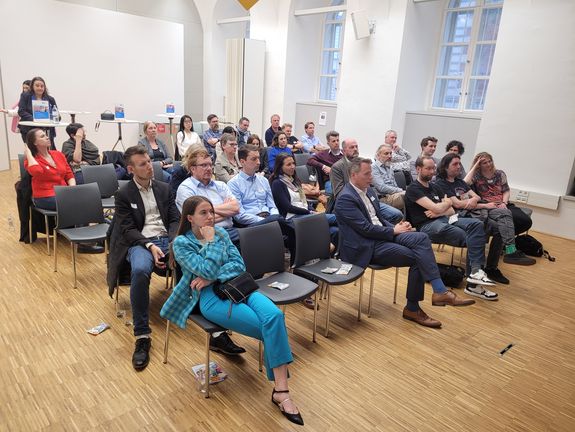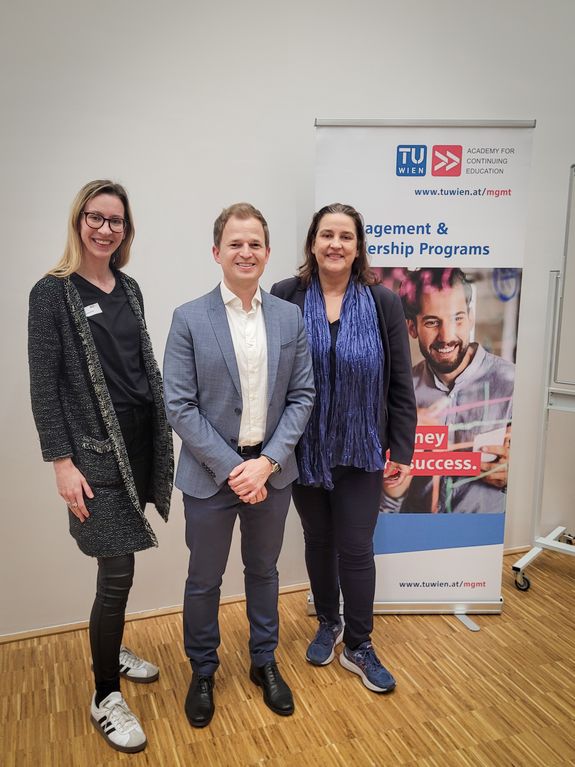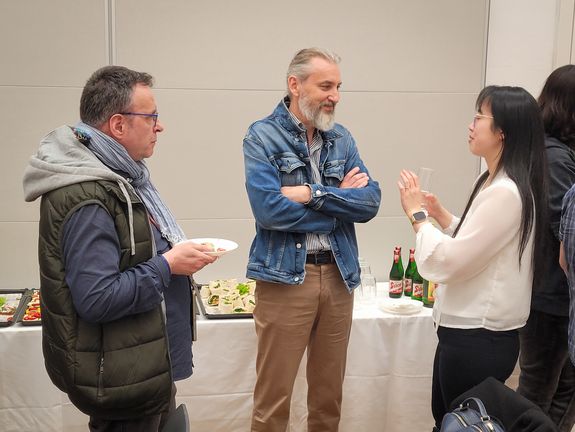The Dual Edge of AI - an Alumni TUesday Event with HR-expert Martin Lenz (CEO Jobiqo)
On Tuesday, May 7, 2024, the Alumni TUesday of the TU Wien Academy was enriched by another exciting lecture: Martin Lenz, CEO of Jobiqo, and participant of the Executive MBA General Management, gave our interested audience an insight “behind the scenes” of the ongoing technological change in the HR sector through artificial intelligence.

1 of 6 images or videos

1 of 6 images or videos

1 of 6 images or videos

1 of 6 images or videos

1 of 6 images or videos

1 of 6 images or videos
As a technology provider, Jobiqo, opens an external URL in a new window offers customers digital solutions in the form of online job platforms, specifically for the recruitment of new employees. Artificial intelligence has played a key role in various areas of companies for years, especially since the field of machine learning became increasingly important in the 1980s. Since then, the pace of technological development has accelerated and intelligent systems have become part of our everyday working world. AI is also playing an increasingly important role in the human resources sector.
AI in Recruiting: Enhancing Efficiency and Accuracy
Thanks to the release of the chatbot “ChatGPT” by US company Open-AI in 2022, which was accompanied by great international media interest, artificial intelligence is now a term that is on everyone's lips in society and is the subject of intense discussion in the world of work. Applications such as ChatGPT are predestined to take over routine tasks from employees and thus achieve a pooling of resources in order to promote effectiveness. Martin Lenz sees the greatest potential of AI in the advanced processing of information that the system can effectively take over (e.g. a summary of a 100-page paper) or the use of AI as an “internal expert” to solve problems.
Leveraging Large Language Models in HR Recruiting Processes
He generally sees large language models as an ideal application for the recruiting area in the HR sector, as many textual tasks can be taken over in various work processes (job advertisements, onboarding information, etc.) or in any case also for the specification of process steps during the application process:
Skill identification: Automatic definition and mapping of relevant skills to a position
Smart matching: AI improves the accuracy of matching (skills, experience, culture, interest ...)
Automated screening: Reduce time spent screening CVs and creating shortlists
Recommendations for Safe AI Usage in Human Resources
Attention should only be paid to built-in biases or hallucinations that can be automatically adopted by the systems. Caution is still required with regard to the actual correct information and the underlying sources, if not a new check, in order to avoid false information. Martin Lenz also sees the use in the further recruiting process as not always ideal - partly due to legal regulations, which are set quite rigorously in the HR sector. For example, when conducting interviews or for candidate screening/hiring recommendations.
Navigating the EU AI Act: Progressive and Safe AI Adoption in Human Resources
The EU AI Act itself categorizes human resources as a high-risk sector (alongside areas such as critical infrastructure, education, employment, essential private and public services, law enforcement), as the recruitment and selection of candidates and influencing decision-making processes with regard to hiring/promotion/termination is a highly sensitive area. According to the EU AI Act, particular attention should be paid to transparency, conformity (with defined standards), fairness and the avoidance of discrimination and the general safeguarding of equal treatment in connection with the use of AI.
Responsible AI Adoption in Human Resources
In the area of human resources, specific recommendations should be made to ensure a progressive but safe use of the new technology:
Training and awareness (upskilling on AI (e.g. models, prompts, tools))
Data protection and compliance (creation of AI guidelines, avoidance of transmission of personal data, avoidance of transmission of secret/protected data)
Transparency: informing applicants and employees about the use of AI
Monitoring bias and errors: recognizing hallucinations
People in the decision-making process: avoiding automated HR decisions
The Future of AI in the Workplace: Embracing Opportunities and Finding Our Role
Artificial intelligence is a technology that is here to stay and will continue to have a significant impact on our everyday working lives. Dealing with it holds many possibilities and opportunities, as well as increased efficiency and improvements. It is and remains important that the people behind it continue to find their role in dealing with the system. With the right planning & strategy, which each company can make individually, the advantages of AI in everyday working life clearly outweigh the disadvantages... an exciting development that will continue to open new doors for us in the future.
Many thanks to Martin Lenz for the exciting insight & to our audience, who were able to bring the topic very close to the respective practice through the joint exchange!
Stay up-to-date on TU Wien Academy for Continuing Education's latest news
You'll receive exclusive content straight to your inbox, including insights into our continuing education programs, leadership & technology, and invitations to upcoming events. Don't miss out on this opportunity to stay connected with TU Wien's global community.